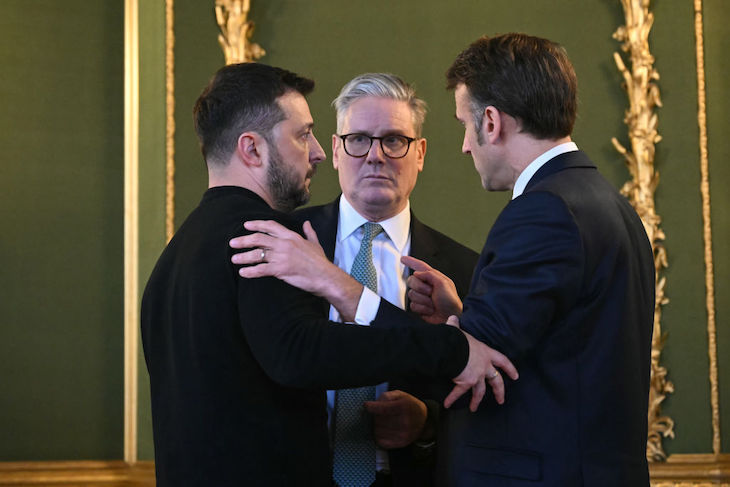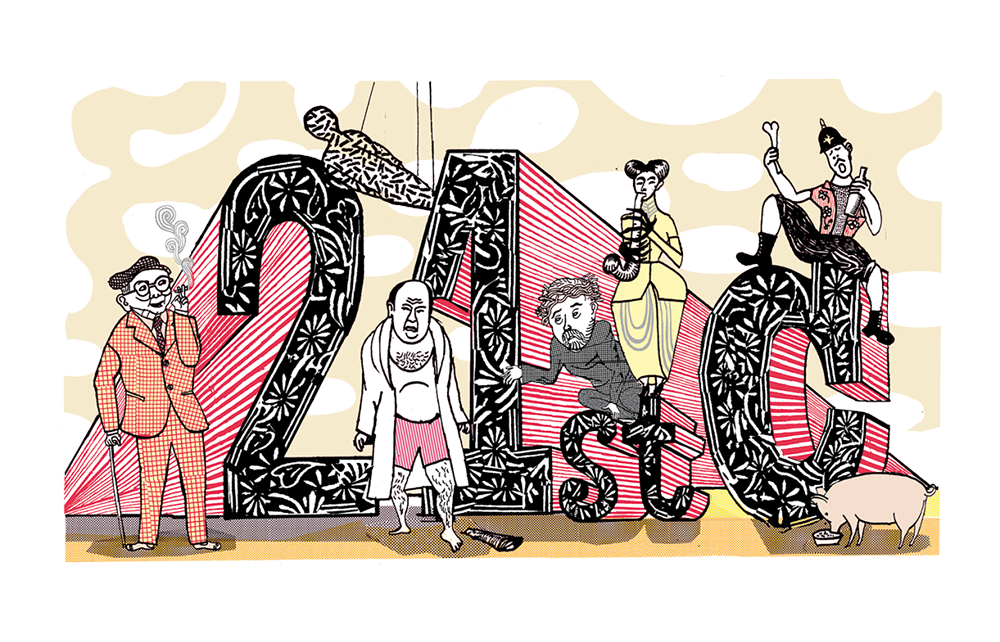Keir Starmer and Emmanuel Macron are in competition to be the de facto leader of the European response to the diplomatic crisis between Donald Trump and Ukraine’s president Zelensky. The cynic might wonder if Macron isn’t perhaps making the most of the fallout to boost his standing after a calamitous few months. The French president’s reputation has not recovered from his decision last June to call a snap election; the result was political chaos and three prime ministers in six months.
Few French have confidence in their president to handle the situation Ukraine effectively
Domestically, France is a disaster zone. Lawlessness, immigration and an ailing economy are just three reasons why last month a poll found that Macron’s approval rating had sunk to 25 per cent. But all is not lost for Macron; there is in France the presidential ‘domaine réservé’ [reserved areas], where the head of state’s influence remains undiminished. These areas are national defence and foreign policy, and so Macron is free to strut his stuff on the world stage.
Few French have confidence in their president to handle the situation Ukraine effectively. An online poll conducted on Monday by one prominent broadcaster asked the question: Are France and Britain capable of presenting a peace plan? No, replied 83 per cent of respondents.
There is also much scepticism from past and present politicians. Pierre Lellouche, the Secretary of State for European Affairs in Nicolas Sarkozy’s government, suggested on Monday that Macron was getting a little carried away. ‘The president of the most indebted and broke country in Europe is presenting himself as the warlord of a situation over which he has no control’, he said.
Marine Le Pen described Macron in similar terms in February last year when the president was the first Western leader to talk publicly about sending troops to Ukraine. ‘Emmanuel Macron plays the warlord but it is the lives of our children that he speaks about with such insouciance,’ she responded.
In a debate in the National Assembly on Monday, the leader of the National Rally expressed her support for Ukraine, but said it would be ‘madness’ to deploy troops to the country. One of her parliamentary allies, Eric Ciotti, leader of the Union of the Right, called Macron a ‘danger for peace’.
Le Pen also said her party would ‘never support a chimerical European defence’. This was a riposte to the Prime Minister, Francois Bayrou, who had opened the debate with a ringing endorsement of the EU. He first described some of the bloc’s military capabilities and then declared: ‘We Europeans are stronger than we think…It is up to us Europeans to guarantee Europe’s security and defence’. He said it was incumbent on France to ‘play a central role’ in ‘building this new world, this new balance’.
It is this ‘new world’ that troubles many in France. They fear that Macron and Bayrou, both fanatical supporters of the EU, will use Trump’s disengagement from Europe as an opportunity to accelerate their dream of a United States of Europe.
In a TV interview on Friday Philippe de Villiers, a minister under Jacques Chirac and a noted Eurosceptic, accused the EU of seeking to prolong the war in Ukraine in order to ‘federalise and unify’ Europe.
‘I’ve been saying for years that we need a more sovereign, more united, more independent Europe,’ declared Macron on Sunday. That’s true. His first major speech as president of the Republic was at the Sorbonne in September 2017, and it was billed as his ‘Initiative for Europe’.
Macron talked of America’s ‘gradual and inevitable disengagement’ from Europe, and said consequently the continent should aim for ‘autonomous operating capabilities’ to complement Nato. But, added Macron, Europe must go further. ‘What Europe, Defence Europe, lacks most today is a common strategic culture. Our inability to work together convincingly undermines our credibility as Europeans.’
To this end, Macron proposed at the weekend that France – the EU’s only nuclear power – could share its nuclear umbrella as part of an integrated European defence. This drew a furious response from the right with both Eric Zemmour and Jordan Bardella, president of the National Rally, saying that such a move would amount to ‘treason’.
Macron responded by saying ‘there is no room for amateurism on these issues’. That’s a little rich coming from Western Europe’s longest-serving leader. It is nearly eight years since Macron came to power, and during that time Europe’s defence strategy has been everything but professional.
One of Macron’s first major acts as president was to force out his head of the armed forces in July 2017. General Pierre de Villier’s mistake was to have protested too loudly about the young president’s plan to slash defence spending by €850 million (£700 million). ‘I see myself as no longer able to guarantee the robust defence force I believe is necessary to guarantee the protection of France and the French people, today and tomorrow,’ said de Villiers in his resignation statement.
To which Macron replied, ‘I am the boss’.
Now Macron has his sights on being boss of Europe’s strategy towards Ukraine. Britain should be wary for everything the president touches has a tendency to go wrong.








Comments